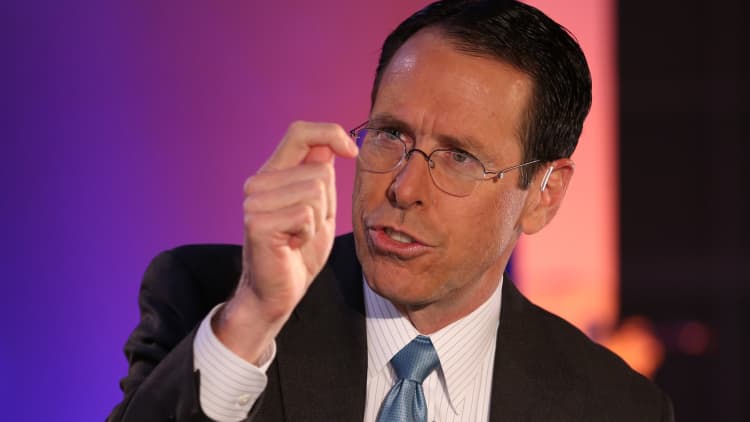
AT&T Chairman and CEO , on CNBC Monday touting the telecom giant's proposed $85 billion buyout of Time Warner, said DirecTV Now is launching next month with a price point "radically lower" than rival over-the-top video services of similar size and scale.
Stephenson, who did not go into further details on the pricing, told "Squawk Box" that DirecTV Now is a nationwide "mobile-centric product," with "100 premium channels." He added, "Purely mobility-driven [and] purely over-the-top, this is a whole new capability."
Last year, AT&T bought DirecTV for $48.5 billion, adding satellite TV to its wireless and broadband subscriber base. "As soon as we closed DirecTV, we went full out on developing this [DirecTV Now idea]," Stephenson said.
By taking the next step of bringing Time Warner on board, he said services like DirecTV Now would be enhanced by the media giant's television and movie content. "This is what we're after, speed of execution and changing the game."
Stephenson laid out some of the possibilities: "What can you do with Time Warner content, really fast and very uniquely for our customers? Can we integrate social into that content? Can you have the capability to, I'm watching content, clip it and send it via social media to my friends?"
The Time Warner deal is a natural evolution of the industry, he said. "The world of distribution and content is converging and we need to move fast and if we want to do something truly unique, begin to curate content differently, begin to format content differently for these mobile environments, and this is all about mobility."
But Stephenson stressed that a new AT&T-Time Warner company would not hold content hostage from other distributors. "The idea that we're going to come along and start to constrict the distribution of this content makes no economic sense. That would be a crazy idea. So the idea that is going to be a byproduct of this [deal], it doesn't make sense."


